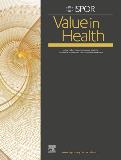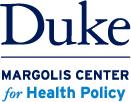
Real-world evidence on treatment outcomes can be an important aspect of the evidence basis for decision making if it is seen as credible. For real-world studies that are meant to test hypotheses about comparative-effectiveness or safety, a key aspect of credibility is that they are conducted transparently with tests that follow a prespecified analytic protocol. Preregistration of such study protocols on a public website would help build trust that their results can be used for decision-making purposes.
Establishing a Culture of Transparency for Real-World Evidence Studies...
The Real-World Evidence Transparency Initiative Partnership is a joint collaboration and ongoing effort between ISPOR, the International Society for Pharmacoepidemiology, the Duke-Margolis Center for Health Policy, and the National Pharmaceutical Council. The objective of this initiative is to establish a culture of transparency for study analysis and reporting of hypothesis evaluating real-world evidence studies on treatment effects.
Improving Transparency to Build Trust...
 The Real-World Evidence Transparency Initiative published a plan to encourage routine registration of noninterventional real-world evidence studies used to evaluate treatment effects. The report, “Improving Transparency to Build Trust in Real-World Secondary Data Studies for Hypothesis Testing—Why, What, and How: Recommendations and a Road Map from the Real-World Evidence Transparency Initiative,”
was published in the September 2020 issue of Value in Health.
The Real-World Evidence Transparency Initiative published a plan to encourage routine registration of noninterventional real-world evidence studies used to evaluate treatment effects. The report, “Improving Transparency to Build Trust in Real-World Secondary Data Studies for Hypothesis Testing—Why, What, and How: Recommendations and a Road Map from the Real-World Evidence Transparency Initiative,”
was published in the September 2020 issue of Value in Health.
More...
The report, “Improving Transparency to Build Trust in Real-World Secondary Data Studies for Hypothesis Testing—Why, What, and How: Recommendations and a Road Map from the Real-World Evidence Transparency Initiative,” was published in the September 2020 issue of Value in Health. The plan includes specifying the rationale for registering hypothesis-evaluating treatment effectiveness real-world evidence studies, the studies that should be registered, where and when these studies should be registered, how and when analytic deviations from protocols should be reported, how and when to publish results, and incentives to encourage registration.
Real-World Evidence Registry
The Real-World Evidence Registry provides researchers with a fit-for-purpose platform to register their study designs before they begin work to facilitate the transparency needed to elevate the trust in the study results.
More...
Real-world evidence studies can be used for hypothesis evaluation of treatment effects including safety (HETE studies). However these studies can also be perceived as less rigorous than clinical trials especially when not preregistered in a public setting such as ClinicalTrials.gov or the EU-PAS register.
ISPOR and its partners ISPE, NPC, and Duke Margolis have developed a simplified registration site especially for RWE HETE studies using secondary data. This searchable site provides a place for preregistration of studies that may not require registration for regulatory purposes but benefit from the rigor of transparent study methods and also provide a reference (such as a URL or doi) to share with peer reviewers, assessors, or other decision making bodies. Researchers can get started ‘here’ by creating a profile on the Open Sciences Framework and registering their study on the RWE Registry.
Shaking the Myth of Real-World Evidence
On-Demand Webinar
Learn more by watching the on-demand webinar, “Shaking the Myth of Real-World Evidence: Updates from the RWE Transparency Initiative.” This session provides updates from the initiative including a walk-through of the study registration site and updates on the special task force developing a standardized RWE protocol template.
Additional Resources
- Real-World Evidence Registry
 Good Practices Reports and Other ISPOR Reports from Value in Health
Good Practices Reports and Other ISPOR Reports from Value in Health
- HARmonized Protocol Template to Enhance Reproducibility of Hypothesis Evaluating Real-World Evidence Studies on Treatment Effects: A Good Practices Report of a Joint ISPE/ISPOR Task Force
- "Improving Transparency to Build Trust in Real-World Secondary Data Studies for Hypothesis Testing—Why, What, and How: Recommendations and a Road Map from the Real-World Evidence Transparency Initiative"
- "Good Practices for Real-World Data Studies of Treatment and/or Comparative Effectiveness"
- "Reporting to Improve Reproducibility and Facilitate Validity Assessment for Healthcare Database Studies V1.0"
- "Unlocking the Promise of Real-World Evidence" (Value & Outcomes Spotlight, Vol. 6, No. 5)
- ISPOR's Real-World Evidence Strategic Initiatives
Conferences & Summits

May 5, 2024
<p><a href="/education-training/short-courses">Back to all short courses</a><br /><strong></strong></p><p><strong></strong><strong></strong><strong>Causal Inference and Causal Diagrams in Big, Real-World Observational Data and Pragmatic Trials (in person at ISPOR 2024)</strong><br /><strong><br />LEVEL: </strong>Advanced<strong><br />TRACK: </strong>Real-World Data & Information Systems<strong><br />LENGTH: </strong>4<strong> </strong>Hours | Course runs 1 day<br /><br />This short course is offered in-person at the ISPOR 2024 conference. Separate registration is required. <a href="/conferences-education/conferences/upcoming-conferences/ispor-2024">Visit the ISPOR 2024 Program page to register</a> and learn more.<br /></p><p><strong><strong>Sunday, 5 May 2024 | Course runs 1 Day<br /></strong></strong>1:00pm-5:00pm Eastern Standard Time (EST)<br /><strong><br />DESCRIPTION</strong></p><div>Separate registration required.</div><div><br /></div><div>Innovative causal inference and target trial emulation methods are needed for the design and analysis of big real-world observational data and pragmatic trials. This course will introduce the principles of causation in comparative effectiveness research, the use of causal diagrams (directed acyclic graphs; DAGs) and focus on causal inference methods for time-independent confounding (multivariate regression, propensity scores) and time-dependent confounding (g-formula, marginal structural models with inverse probability of treatment weighting, and structural nested models with g-estimation). The “target trial” concept and a counterfactual approach with “replicates” will be used to apply causal methods to big real-world datasets with case examples from oncology, cardiovascular disease, HIV, nutrition and obstetrics. The course will consist of lectures, case examples drawn from the published literature and interactive discussion. The intended audience includes researchers from all substance matter fields, statisticians, epidemiologists, outcome researchers, health economists and health policy decision makers interested either in methods of causal analysis or causal interpretation of results based on the underlying method.</div><div><br /></div><div>PREREQUISITE: Students are expected to have a basic knowledge in epidemiologic studies and methods (including the concept of confounding).</div><div><p> </p><p><strong style="background-color:transparent;color:inherit;font-size:inherit;text-align:inherit;text-transform:inherit;word-spacing:normal;caret-color:auto;white-space:inherit;">FACULTY MEMBERS</strong></p></div><div><strong></strong></div><div><strong></strong></div><div><strong></strong></div><div><strong></strong></div><div><strong fontscheme="2">Uwe Siebert, MD, MPH, MSc, ScD</strong></div><div>Professor & Chair</div><div>UMIT - University for Health Sciences</div><div>Medical Informatics and Technology</div><div>Hall in Tirol, Austria and</div><div>Harvard Chan School of Public Health</div><div>Harvard University</div><div>Boston, MA, USA</div><div fontscheme-block="2"><br /></div><div><strong fontscheme="2">Douglas E. Faries, PhD</strong></div><div>Consultant</div><div>Alma, AR, USA</div><div></div><div></div><div></div><div><br /></div><div><strong style="background-color:transparent;color:inherit;font-size:inherit;text-align:inherit;text-transform:inherit;word-spacing:normal;caret-color:auto;white-space:inherit;">Basic Schedule:</strong></div><p>4 Hours | Course runs 1 Day</p><div><strong><em>ISPOR short courses are designed to enhance knowledge and techniques in core health economics and outcomes research (HEOR) topics as well as emerging trends in the field. Short courses offer 4 or 8 hours of premium scientific education and an electronic course book. Active attendee participation combined with our expert faculty creates an immersive and impactful learning experience. Short courses are not recorded and are only available during the live course presentation.</em></strong></div>)
Short Courses & Webinars

May 5, 2024
<p><a href="/education-training/short-courses">Back to all short courses</a><br /><strong></strong></p><p><strong></strong><strong></strong><strong>Causal Inference and Causal Diagrams in Big, Real-World Observational Data and Pragmatic Trials (in person at ISPOR 2024)</strong><br /><strong><br />LEVEL: </strong>Advanced<strong><br />TRACK: </strong>Real-World Data & Information Systems<strong><br />LENGTH: </strong>4<strong> </strong>Hours | Course runs 1 day<br /><br />This short course is offered in-person at the ISPOR 2024 conference. Separate registration is required. <a href="/conferences-education/conferences/upcoming-conferences/ispor-2024">Visit the ISPOR 2024 Program page to register</a> and learn more.<br /></p><p><strong><strong>Sunday, 5 May 2024 | Course runs 1 Day<br /></strong></strong>1:00pm-5:00pm Eastern Standard Time (EST)<br /><strong><br />DESCRIPTION</strong></p><div>Separate registration required.</div><div><br /></div><div>Innovative causal inference and target trial emulation methods are needed for the design and analysis of big real-world observational data and pragmatic trials. This course will introduce the principles of causation in comparative effectiveness research, the use of causal diagrams (directed acyclic graphs; DAGs) and focus on causal inference methods for time-independent confounding (multivariate regression, propensity scores) and time-dependent confounding (g-formula, marginal structural models with inverse probability of treatment weighting, and structural nested models with g-estimation). The “target trial” concept and a counterfactual approach with “replicates” will be used to apply causal methods to big real-world datasets with case examples from oncology, cardiovascular disease, HIV, nutrition and obstetrics. The course will consist of lectures, case examples drawn from the published literature and interactive discussion. The intended audience includes researchers from all substance matter fields, statisticians, epidemiologists, outcome researchers, health economists and health policy decision makers interested either in methods of causal analysis or causal interpretation of results based on the underlying method.</div><div><br /></div><div>PREREQUISITE: Students are expected to have a basic knowledge in epidemiologic studies and methods (including the concept of confounding).</div><div><p> </p><p><strong style="background-color:transparent;color:inherit;font-size:inherit;text-align:inherit;text-transform:inherit;word-spacing:normal;caret-color:auto;white-space:inherit;">FACULTY MEMBERS</strong></p></div><div><strong></strong></div><div><strong></strong></div><div><strong></strong></div><div><strong></strong></div><div><strong fontscheme="2">Uwe Siebert, MD, MPH, MSc, ScD</strong></div><div>Professor & Chair</div><div>UMIT - University for Health Sciences</div><div>Medical Informatics and Technology</div><div>Hall in Tirol, Austria and</div><div>Harvard Chan School of Public Health</div><div>Harvard University</div><div>Boston, MA, USA</div><div fontscheme-block="2"><br /></div><div><strong fontscheme="2">Douglas E. Faries, PhD</strong></div><div>Consultant</div><div>Alma, AR, USA</div><div></div><div></div><div></div><div><br /></div><div><strong style="background-color:transparent;color:inherit;font-size:inherit;text-align:inherit;text-transform:inherit;word-spacing:normal;caret-color:auto;white-space:inherit;">Basic Schedule:</strong></div><p>4 Hours | Course runs 1 Day</p><div><strong><em>ISPOR short courses are designed to enhance knowledge and techniques in core health economics and outcomes research (HEOR) topics as well as emerging trends in the field. Short courses offer 4 or 8 hours of premium scientific education and an electronic course book. Active attendee participation combined with our expert faculty creates an immersive and impactful learning experience. Short courses are not recorded and are only available during the live course presentation.</em></strong></div>)



